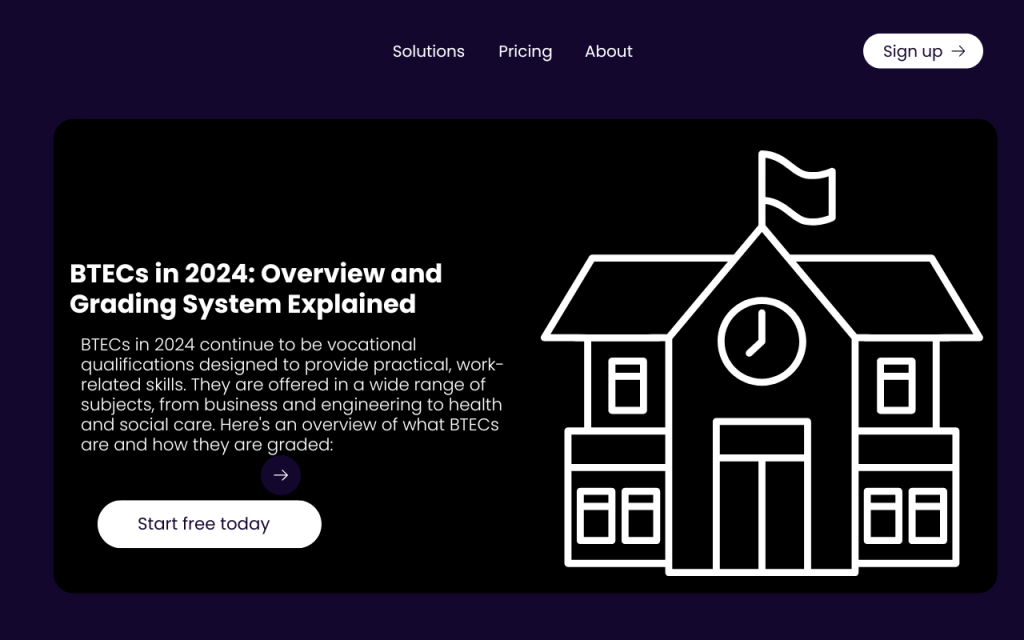BTECs in 2024 continue to be vocational qualifications designed to provide practical, work-related skills. They are offered in a wide range of subjects, from business and engineering to health and social care. Here's an overview of what BTECs are and how they are graded:
What are BTECs?
- Vocational Qualifications: BTECs (Business and Technology Education Council) are vocational qualifications that focus on specific industries and sectors. They are aimed at providing practical skills and knowledge relevant to the workplace.
- Levels of Study: BTECs are available at different levels, ranging from Level 1 (equivalent to GCSE grades D-G) up to Level 7 (equivalent to master's degree level).
- Subject Areas: BTECs cover a wide range of subjects, including business, engineering, health and social care, IT, performing arts, sport, and more. Each subject area is tailored to provide skills and knowledge specific to that industry.

How are BTECs Graded?
- Unit-Based Assessment: BTECs are typically assessed through a combination of coursework, practical tasks, and exams. Assessment is often broken down into units, with each unit focusing on specific skills and knowledge relevant to the subject.
- Grading System: BTECs use a grading system that differs from traditional A-levels and GCSEs. The grading scale commonly used for BTECs includes:
- Pass (P): Indicates that the learner has met the minimum requirements.
- Merit (M): Recognizes a higher level of achievement, demonstrating a deeper understanding and application of skills.
- Distinction (D): Reflects outstanding achievement, showcasing comprehensive skills and knowledge.
- Distinction (D)**: An additional grade for exceptional performance beyond the standard Distinction.
- Overall Qualification Grade: The overall grade for a BTEC qualification is determined by the accumulation of points from all units completed. Each unit is graded individually (P, M, D, D*), and the final qualification grade is usually a combination of these grades across all units.
Updates for 2024
As of 2024, BTECs may see updates in curriculum content and assessment methods to align with current industry standards and educational requirements. It's important for students and educators to stay informed about any changes and updates from the examining bodies.
In conclusion, BTECs in 2024 remain a valuable pathway for students interested in gaining practical skills and knowledge relevant to specific industries. The grading system emphasizes practical application and skill development, preparing learners for future employment or further academic study in their chosen field.
Comments (0)